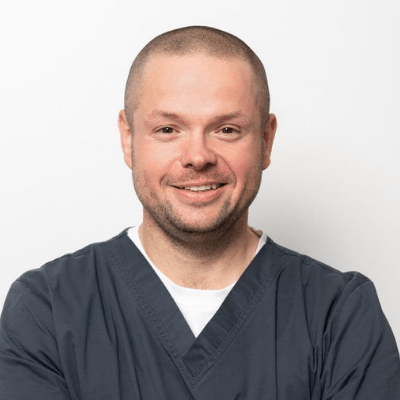
RM INTERVIEW – DR. STEPAN BUDKA, IVF SPECIALIST
Treatment of infertility has undergone major changes in the recent years, as have other medical disciplines. Which changes are the greatest?
In particular, I perceive the greatest change in the fact that our medical field gradually loses its “taboos”. Unfortunately, it is still not possible to instill responsible reproductive behavior in the population – not to postpone pregnancy to a higher age (applies to both in the couple but especially to women). For women it means that higher reproduction age is considered around 30 resp. 35 already. We understand people don’t want to hear this, but that’s reality.
What are the current trends in assisted reproduction?
Genetics. Not only an even more detailed genetic examination of the couples or the donors, but especially the preimplantation diagnostics of embryos. Basically, this means that we will know more and more about the genetic structure of the embryo in the future, thereby increasing the success of our treatment, but will be also able to reduce the number of genetically bound diseases. In this respect, our center is following the latest practices in modern medicine – we can offer you all modern methods and examinations.
What are the benefits of treatment in the Czech Republic?
Czech Republic clearly belongs to the strong players in this field. Czech participated in the very beginning of the development of this field and even today is our care at the highest possible level. I see this as a first and essential advantage. Another one is the price of therapy. You get top quality treatment in half or a third of the price in other European or world countries. In addition, the Czech Republic is an attractive and safe country for tourists, unlike other countries in Western or Central Europe. This means that you can combine pleasant with useful.
What are the most common causes of infertility?
Most often couples (and unfortunately their number is still growing) are postponing pregnancy. The average age of women coming for the first consultation in the Czech centers is around 37, which is late considering the laws of biology. The second large group with infertility issues are women with endometriosis. Unfortunately, we are still unable to treat this diagnosis. Our center has quite a wealth of experience with the treatment of donated gametes.
What are the most common questions of infertile couples before IVF treatment?
Typical questions always relate to possible complications and risks of the treatment. On the contrary, anyone who would go into treatment without any worries does not, in my view, have a completely healthy approach to the whole thing.
Do you remember any experience lately that has made you really happy? Which?
I do have one such case, a couple who went through 17 therapies and 17 transfers. They decided for their last attempt with us, so it was their 18th transfer… and our patient is already in the 20th week of pregnancy and everything looks fine. Everyone in our center was delighted with this success.








